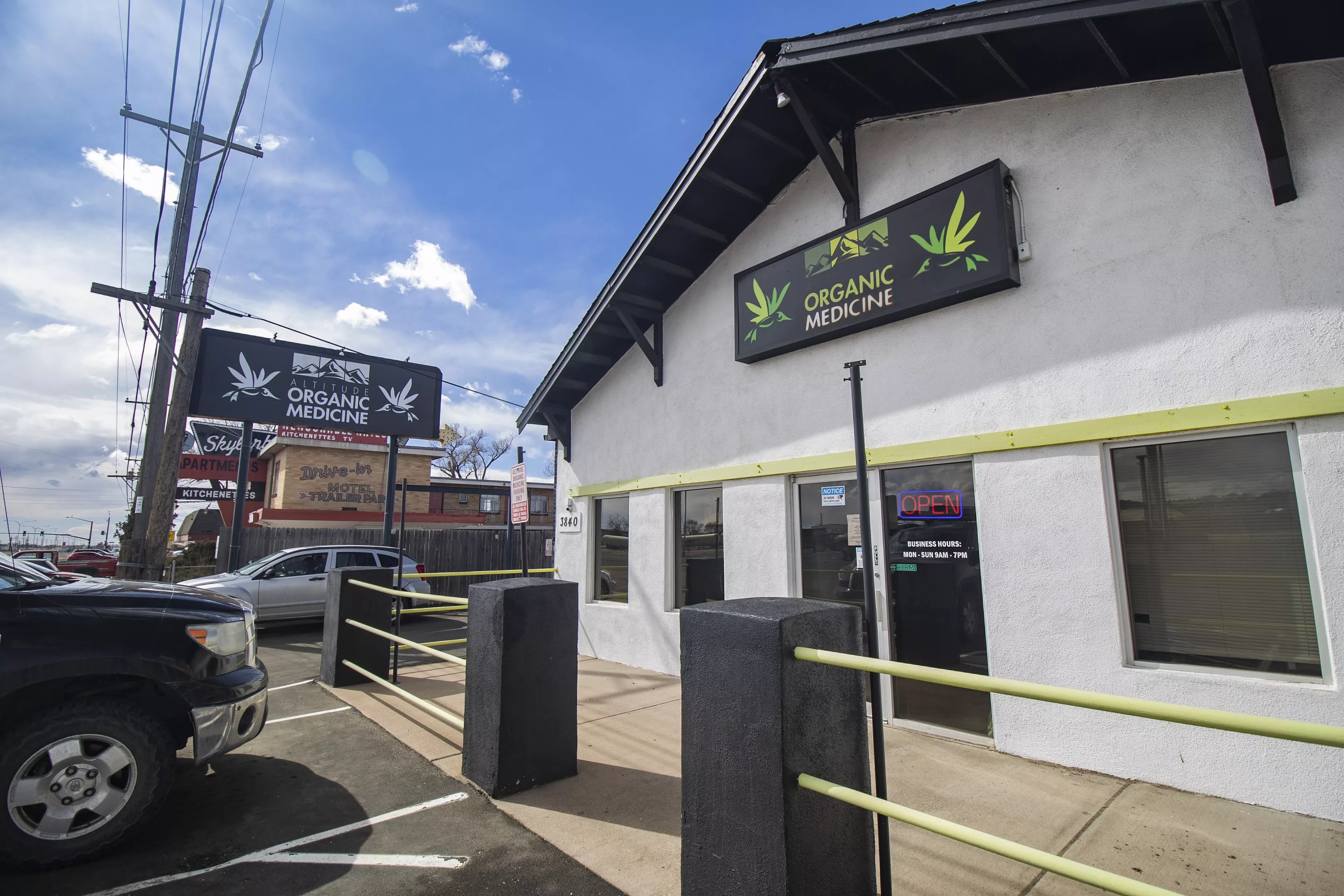
Courtesy of Altitude Organic Medicine

Audio By Carbonatix
Marijuana doesn’t get the same attention on election night that it used to in Colorado, where the plant has been legal for adults at the state level since 2012. But towns and counties still have plenty of say in how – or even if – dispensaries, cultivations and other marijuana businesses operate within their borders.
In this election cycle, voters in eight Colorado municipalities weighed marijuana-related measures, from the Denver suburbs to border towns to Colorado Springs, where separate proposals banning and allowing retail pot sales both passed.
Check out these results across Colorado from the Secretary of State’s Office:
Alamosa
A town of about 10,000 people, Alamosa already allows recreational marijuana sales, but Alamosa’s three pot shops probably won’t be allowed to sell medical marijuana products. So far, nearly 56 percent of voters have rejected a ballot proposal that would’ve allowed medical sales at dispensaries.
Colorado Springs
The state’s second-largest city has allowed medical marijuana sales for the better part of two decades, but recreational sales remain prohibited despite multiple citizen-initiated attempts. This year, Colorado Springs voters finally approved a local ordinance allowing the city’s dozens of medical marijuana dispensaries to offer recreational sales – but they also approved a separate measure that prohibits recreational sales in the city charter.
Once the election is certified, Springs officials may have a schism on their hands, with Mayor Yemi Mobolade telling local media the result “presents a really interesting legal dilemma for us.”
However, Mobolade added that he and the city attorney believe the ban added to the city charter supersedes the ordinance allowing retail sales. Marijuana legalization didn’t get where it is today without a lawsuit or two, though, so we’ll see where this one ends up.
Erie
Erie, a town just north of Lafayette in Boulder and Weld counties, bans marijuana dispensaries but allows cultivation businesses. There are currently no recreational marijuana growers located in Erie, according to the Colorado Marijuana Enforcement Division, but voters were tasked with deciding on a 5 percent local excise tax on recreational marijuana growers in town. The measure appears to have passed; as of early November 6, over 58 percent of Erie voters were in favor of the measure.
Fort Lupton
Fort Lupton voters approved dispensaries in 2021, but they had two more marijuana ordinances to consider this year. Early returns indicate voters have approved a measure allowing marijuana cultivations, extraction facilities, edibles manufacturers, testing labs and other businesses, but they also appear to have rejected a measure proposing a 1.5 percent excise tax on those businesses.
Littleton
The City of Littleton only has three dispensaries, but local officials estimated those three marijuana stores would generate an additional $646,000 in annual tax revenue if Littleton raised its recreational marijuana sales tax by 4 percent. If approved, the measure would increase Littleton’s local recreational pot sales tax to 7 percent overall, but that doesn’t count 17.9 percent in state sales taxes. Voters are mostly split on the measure, which had just under 52 percent of the vote as of Wednesday afternoon.
Loveland
Loveland, a Larimer County town that has long banned commercial marijuana sales, appears to have approved a small number of medical and recreational dispensaries to operate in town. Local Ballot Question 2H would allow a “limited” number of marijuana stores, with further regulations to be decided by the city council. Even if voters approved 2H, however, a separate ballot initiative proposing a 5 percent local sales tax on marijuana had to pass in order for 2H to take effect. As of late November 5, both 2H and the excise tax initiative, Ballot Issue 2F, were in place to pass with comfortable majorities.
Mead
Voters in Mead, a small community north of Boulder, appear to have rejected a proposal that would have allowed a “limited number” of marijuana businesses to operate in town. As of Wednesday afternoon, almost 60 percent of voters had weighed in against the measure.
Sterling
Sterling voters approved commercial marijuana sales in 2023 but rejected a separate proposal for a local sales tax on pot sales. The northeastern Colorado town’s government has until 2025 to craft regulations before dispensaries can apply to open there, so if the second go-round for local marijuana taxes didn’t pass, the town could be faced with allowing marijuana sales but not collecting any revenue. As of late Tuesday night, a ballot measure proposing a 5 percent tax on local marijuana sales had a slight majority, but it was still too close to call.